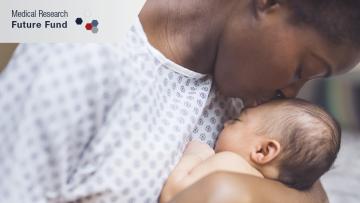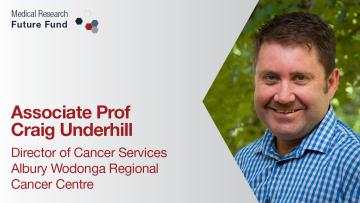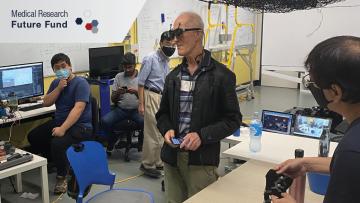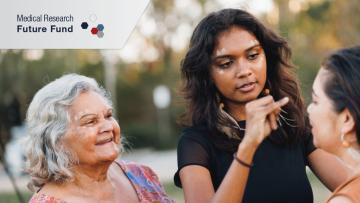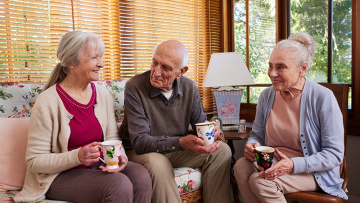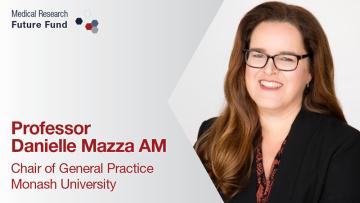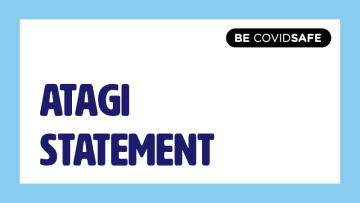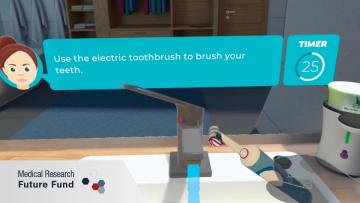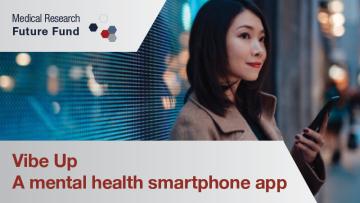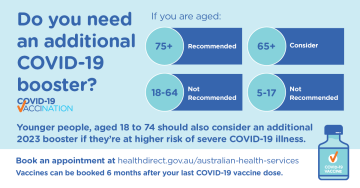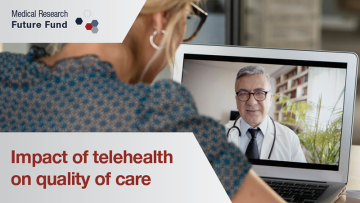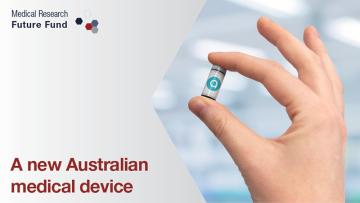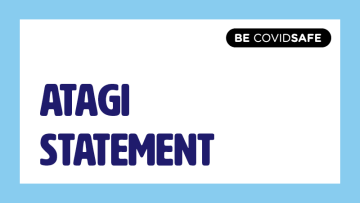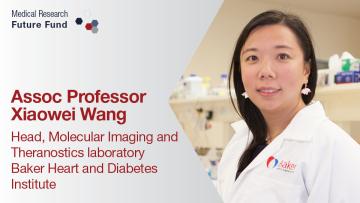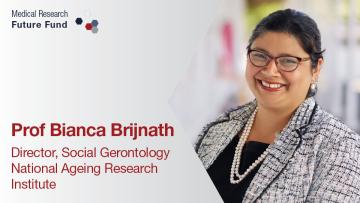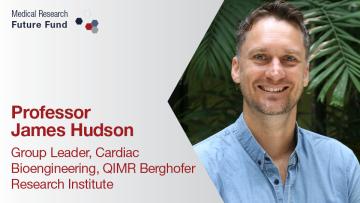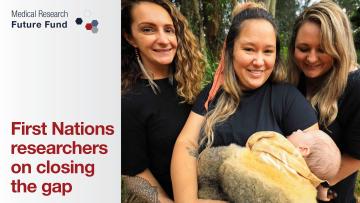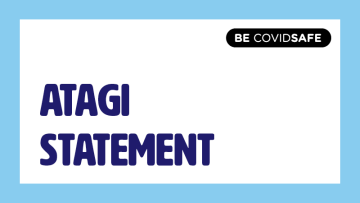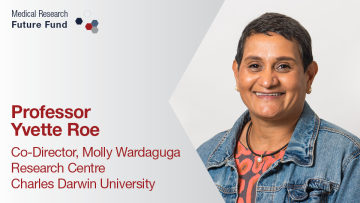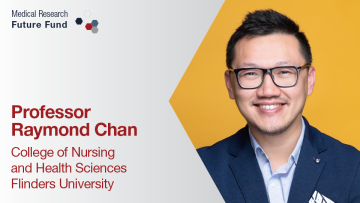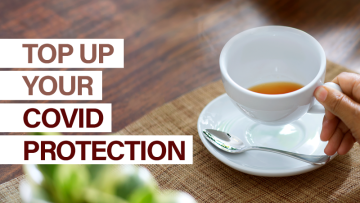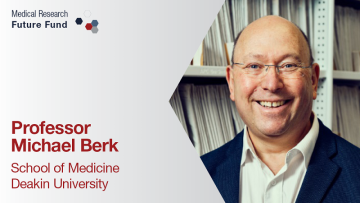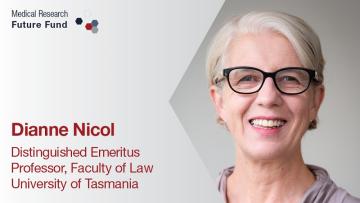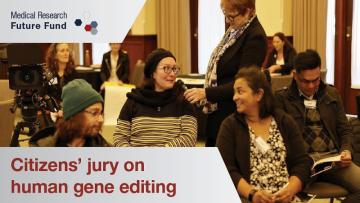Filter results
You can narrow down the results using the filters
Audience
Topics
Our work
Year
356 results
-
Helping newborn babies to start breathing
One in ten newborns need help to start breathing at birth. Australian company ResusRight is developing a world-first portable resuscitation monitor. The Nemo monitor shows paramedics and birth attendants how much air to give the baby, helping to avoid injury or death. -
Improving cancer outcomes by helping regional patients join clinical trials
Cancer specialist Associate Professor Craig Underhill is leading an ambitious program to improve cancer outcomes in regional Victoria by 2025. He is giving patients access to new treatments by increasing their access to clinical trials. -
Smart glasses could help people who are blind or vision impaired navigate by sound
Augmented reality glasses combine machine vision and AI to add digital information to what we see. Entrepreneur Robert Yearsley is adapting this technology to help people who are blind or vision impaired navigate by spatial sound. -
Measuring the wellbeing of First Nations youth
Australian youth are among the healthiest in the world, but First Nations youth continue to be left behind. To help close this gap, researchers are developing a wellbeing measure specifically for First Nations youth. -
Protecting older people in the festive season
Christmas, summer and the festive season is a time many of us spend with our family and friends. Make sure you know the basics and protect yourself, family and friends from COVID-19. -
Nurses are helping rural and regional women access contraception and medical abortion
Women living in rural and regional areas have more unplanned pregnancies and less access to contraception and medical abortion. Professor Danielle Mazza AM is trialling a nurse-led model of care to address this need. -
ATAGI recommendations on use of the Moderna and Pfizer monovalent Omicron XBB.1.5 COVID-19 vaccines
Recommendations from the Australian Technical Advisory Group on Immunisation (ATAGI) on the use of XBB 1.5 COVID-19 vaccines. -
Virtual reality is helping brain injury survivors regain use of their arms and hands
Survivors of brain injuries caused by stroke and other serious events can lose function in their arms and hands. An Australian company is creating a virtual reality therapy system to help survivors regain the use of these limbs. -
Can AI personalise mental health treatments for university students?
University students can feel severe psychological distress before their exams. The Vibe Up trial uses artificial intelligence (AI) to find out if digital mental health therapies can help, and which therapies work best for each student. -
ATAGI update additional 2023 COVID-19 vaccination dose
The Australian Technical Advisory Group on Immunisation (ATAGI) recently updated their advice for the COVID-19 booster dose. -
Does using telehealth affect our healthcare?
Telehealth was an emergency response to the COVID-19 pandemic, allowing patients to consult with GPs by telephone or video under lockdown. Post-pandemic, telehealth is here to stay. Professors Rosemary Korda and Christine Phillips are finding out how using telehealth affects primary healthcare. -
A smart gas-sensing capsule invented in Australia could soon help people living with bowel syndromes
Doctors could soon use the smart Atmo Gas Capsule to diagnose and treat bowel syndromes, replacing invasive or hard to interpret methods. The Australian company Atmo Biosciences is developing and marketing this new device. -
ATAGI Update on the COVID-19 Vaccination Program
Recommendations from the Australian Technical Advisory Group on Immunisation (ATAGI) regarding an additional COVID-19 dose for highest risk people in 2023. These recommendations are in addition to the previous ATAGI COVID-19 vaccine booster advice published in February 2023. -
mRNA therapies to stop heart disease
Associate Professor Xiaowei Wang wants to stop heart disease. To reach this goal, Xiaowei is developing mRNA therapies. She uses nanoparticles in nasal spray and with ultrasound to target these therapies to disease sites in the body. -
Reducing the stigma of elder abuse to improve older people’s health
Elder abuse causes declining physical and mental health in older people. But older people are often too ashamed to report it. Professor Bianca Brijnath is trialling a new model of care to help older people report abuse and improve their health. -
Finding a drug to protect the heart from damage by COVID-19
COVID-19 can be fatal for patients with heart disease. Even patients without heart disease can suffer damage to their heart. Bioengineer Professor James Hudson has found a drug which could protect our hearts from this damage. -
Emerging health and medical research leaders are solving health problems and improving health care
The MRFF’s Early to Mid-Career Researchers initiative helps emerging health and medical research leaders team up to solve difficult health problems or improve health care. Project leaders explain their ground-breaking research. -
To celebrate National Reconciliation Week, we ask First Nations health and medical research experts how we are closing the gap
Reconciliation is about strengthening relationships between First Nations and non-First Nations peoples, for the benefit of all Australians. First Nations health and medical research experts tell us what we have achieved and what more we can do to improve the health of their peoples. -
ATAGI advice on the preferential use of bivalent COVID-19 vaccines for primary vaccination of people aged 12 years or older
ATAGI has made recommendations on the use of bivalent COVID-19 vaccines as a primary course. -
Birthing healthy and strong babies on Country
Professor Yvette Roe leads a collaborative partnership that is transforming maternity care to promote the best start in life for First Nations children. The partnership is translating the successful Indigenous Birthing in an Urban Setting study into rural, remote and very remote settings. -
A new patient-centred approach to caring for cancer survivors
Cancer survivors don’t always get the follow-up care they need, according to specialist cancer nurse Professor Raymond Chan. To fix this, Ray is trialling a new nurse-led clinic to coordinate shared care between hospitals and GPs. He hopes shared care will give survivors a better care experience. -
Top up your COVID-19 protection
The Australian Government has launched a new advertising campaign to encourage adults to get a COVID-19 booster if it has been 6 months or more since their last COVID-19 vaccination or infection. -
Finding new drugs for depression in bipolar disorder
People with bipolar disorder are depressed for almost half their lives but there is no effective treatment. After searching drug profiles, psychiatrist Professor Michael Berk discovered the common high blood pressure drug candesartan could help. He is testing candesartan in a clinical trial. -
Responding to ethical issues in genetics research
Professor Dianne Nicol is passionate about talking to the community about ethical, legal and social issues in genetics research. We asked Dianne about becoming an expert in this field and the most urgent issues in genetics research today. -
Is human gene editing good for our health? A citizens’ jury speaks
Gene editing allows us to modify our genes. This can cure diseases. But it could also be used in the future to select for traits that give social or competitive advantages. Professor Nicol asked a citizens’ jury to decide under what circumstances we should allow human gene editing.

